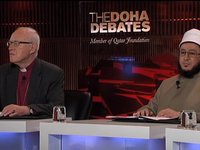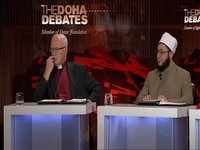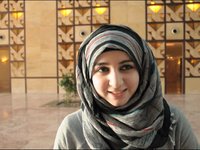This House believes Arab governments need to take urgent measures to protect religious minorities
Monday April 30 2012
MOTION PASSED
by 72% to 28%
Opinion poll
Doha Debates poll; Arabs believe governments need to protect religious minorities
A majority of young Arabs, mostly from the six-member Gulf Cooperation Council (GCC), believe governments need to move swiftly to protect religious minorities through promoting co-existence among citizens, according to the latest Doha Debates opinion poll.
More than two-thirds of respondents, mostly Arab Gulf males and less than 30 years of age, said governments should protect these minorities for two main reasons: Islam promotes religious tolerance and it is the duty of the state to safeguard all citizens.
The majority of respondents on both sides, however, agreed that Arab governments would not be able to protect religious minorities, let alone protect "the majorities" due to instability sweeping much of the region. They also said governments should focus more on protecting freedom of expression instead of the rights of individual groups
The overall poll findings were close to the result of the April 30 Doha Debate in which 72 percent of the audience voted for the motion: 'This House believes Arab governments need to take urgent measures to protect religious minorities'.
Those who opposed or supported the notion of urgent measures to protect such minorities said educating citizens on "successful coexistence" was key.
Fifty-nine percent of those who opposed the need for immediate action to protect religious minorities said they saw no imminent threat against them. Most of respondents in this category came from North Africa.
Fighting extremism was cited as priority by many respondents. Focusing on religious minorities would further "stigmatize" these groups. Twenty-five percent of those polled from The Levant viewed the rise of political Islam as a threat to religious minorities.
Religious minorities in Lebanon and Egypt were perceived by respondents as enjoying highest levels of "freedom and equality" as opposed to their counterparts in Iraq, Syria and Sudan. Respondents said they believed religious minorities in Tunisia were better off since the 2011 revolution that toppled the president.
Interestingly, around 1 in 8 Arab respondents claim to believe "we are all born equal and nothing differentiates us from one another".
Three of ten respondents in the GCC said race and color were leading differentiating factors compared to those in North Africa and the Levant, who cited background and culture.
The survey, conducted by the polling company YouGov between the 10th and 14th of May, questioned 1,038 people: 57 percent of which reside in the GCC, mostly Saudi Arabia, and the rest were almost equally divided between the Levant and North Africa. Syrians and Egyptians formed the majority of respondents in the two other regions.
Polling dates: 10th - 14th May 2012
Download the polling data [PDF]Watch online




